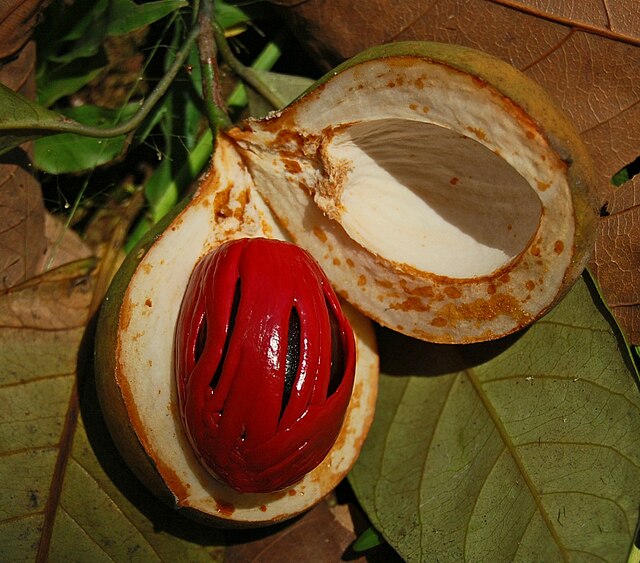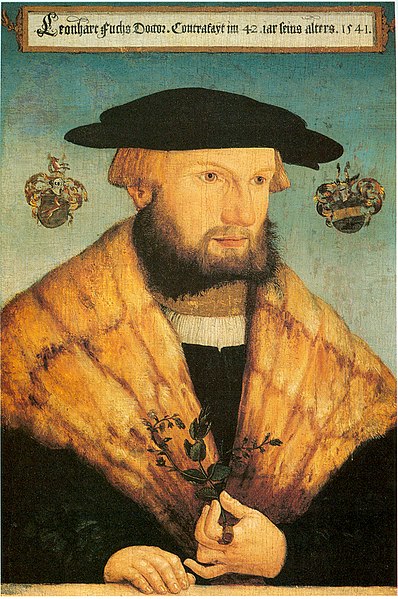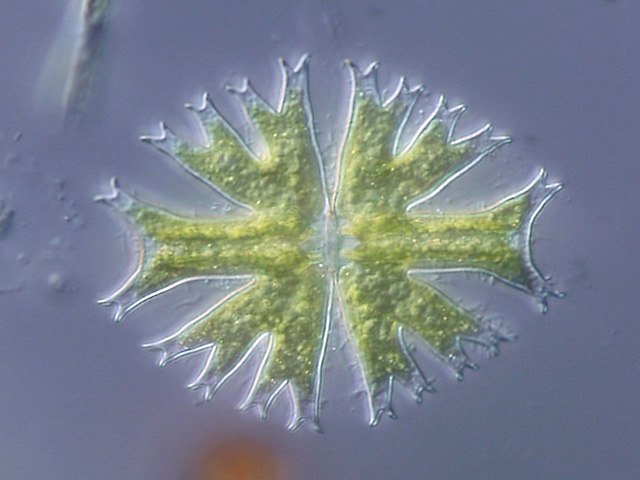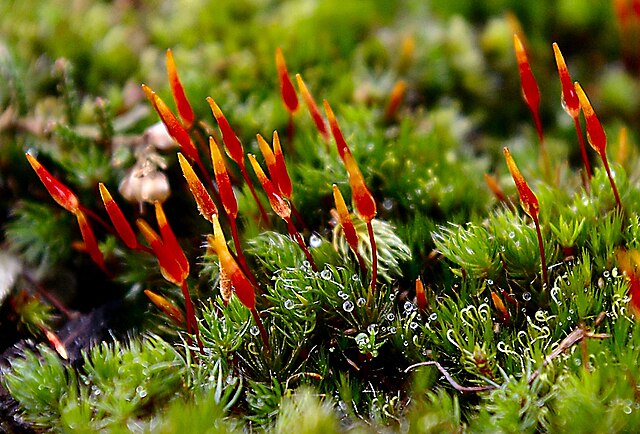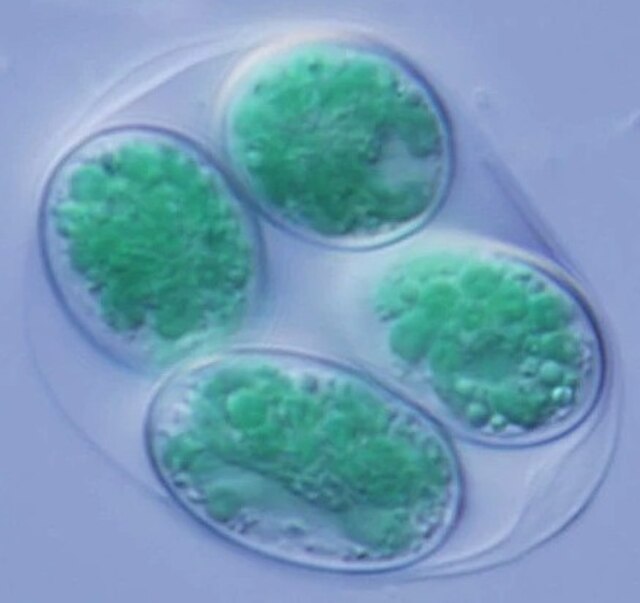Botany, also called plant science, plant biology or phytology, is the science of plant life and a branch of biology. A botanist, plant scientist or phytologist is a scientist who specialises in this field. The term "botany" comes from the Ancient Greek word βοτάνη meaning "pasture", "herbs" "grass", or "fodder"; βοτάνη is in turn derived from βόσκειν, "to feed" or "to graze". Traditionally, botany has also included the study of fungi and algae by mycologists and phycologists respectively, with the study of these three groups of organisms remaining within the sphere of interest of the International Botanical Congress. Nowadays, botanists study approximately 410,000 species of land plants of which some 391,000 species are vascular plants, and approximately 20,000 are bryophytes.
The fruit of Myristica fragrans, a species native to Indonesia, is the source of two valuable spices, the red aril (mace) enclosing the dark brown nutmeg.
Leonhart Fuchs
Hieronymus Bock
The Linnaean Garden of Linnaeus' residence in Uppsala, Sweden, was planted according to his Systema sexuale.
Plants are the eukaryotes that form the kingdom Plantae; they are predominantly photosynthetic. This means that they obtain their energy from sunlight, using chloroplasts derived from endosymbiosis with cyanobacteria to produce sugars from carbon dioxide and water, using the green pigment chlorophyll. Exceptions are parasitic plants that have lost the genes for chlorophyll and photosynthesis, and obtain their energy from other plants or fungi.
Image: Frühling blühender Kirschenbaum
Image: Micrasterias radiata
Image: Red Moss
Image: Glaucocystis nostochinearum

